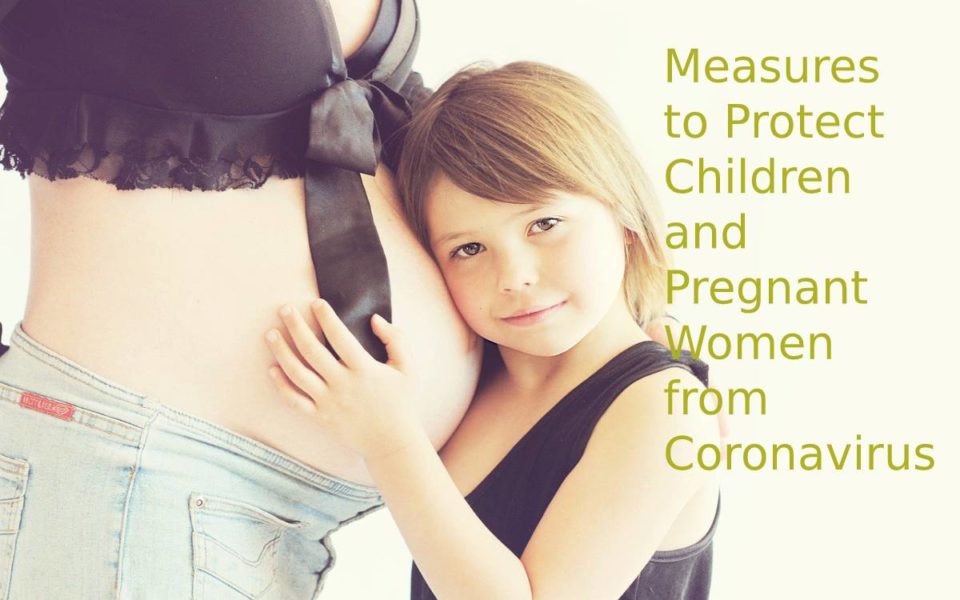Every day there are more cases of the new corona virus COVID-19, and with it, there has been growing concern about methods of preventing transmission, especially in vulnerable groups. Therefore, we tell you how to protect children and pregnant women from coronavirus.
Table of Contents.
Due to its symptoms, this disease can be confused with other problems such as the flu, so it is essential to take extreme prevention measures.
Do questions arise?
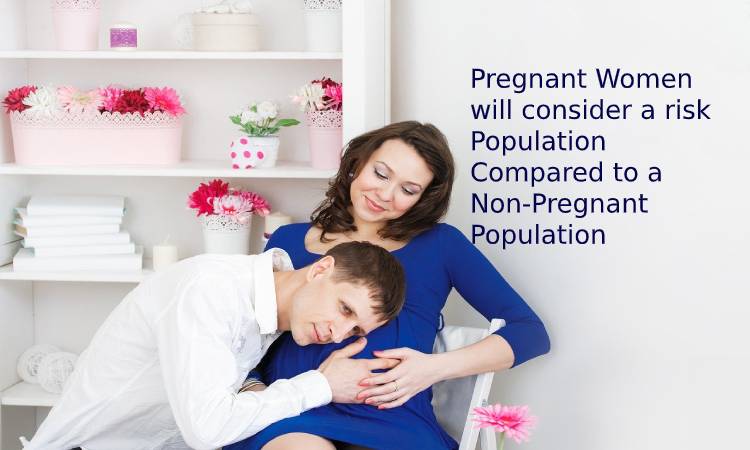
Pregnant women will consider a risk population compared to a non-pregnant population, and they are offering the vaccine during the season. Now, we live in an exceptional situation, with a new virus (Covid-19) whose drug is being worked on and expect to be on the market shortly.
Due to the little scientific evidence, there is great social fear, and millions of questions arise. Through this news, we will try in this social hysteria to clarify some doubts directed at women in the gestation period.
Can the virus be passed to the baby?
What measures should a pregnant woman take before Covid-19?
Can you breastfeed if the mother is sick with coronavirus?
What we know the rate of coronavirus infection in pregnant women is similar to an adult. Therefore, it is essential that they follow the recommendations to avoid contagion, and that they consult with the reference specialist in case of suspected infection.
Scientific Evidence Corona virus COVID-19
In this sense, the head of the Gynecology and Obstetrics Service at the Hospital clarifies that pregnant women must protect themselves because they are considered a population at risk. “The same measures must be maintained. Try not to be in contact with people who have the virus or may suspect that they have it. They are a group of people at risk, and therefore they must protect themselves. Do not go out for bread, not even for the newspaper, “advises the expert.
Fortunately, children appear to be the least affected by Covid-19, even at birth. Several Chinese teachers have published a study in the journal Frontiers in Pediatrics that states that the virus does not appear to transmit’s from pregnant mothers to their newborns.
In this sense, the expert clarifies that currently, there is no evidence of vertical transmission. In other words, from a pregnant woman to the fetus or embryo. That a mother who tests positive in the second or third trimester of pregnancy increases the risk of her child suffering abnormalities or newborn disease,” she clarifies. However, nevertheless, there is a relationship between Covid-19 positive mothers and prematurity.
Information issued by the Spanish Society of Gynecology and Obstetrics (SEGO)
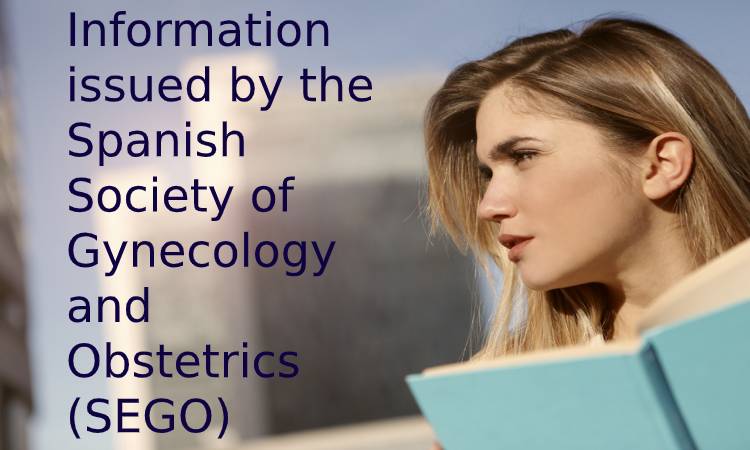
Despite a little data available on the effect of Covid-19 and pregnancy, it seems that this virus affects more men than women, so pregnant women would not be more susceptible to contagion.
In pregnant women, there is a wide range of clinical manifestations, from asymptomatic to severe respiratory symptoms.
Chen and Cols. Study in February 2020. Nine pregnant women in the third trimester: 100% healthy NB, all delivered by elective cesarean section, No serious pregnant woman.
From these publications with a little sample, SEGO extrapolates that:
- Pneumonia is not more severe in pregnant women compared to other population groups.
- There is no vertical transmission from mother to fetus.
- Perinatal infection can have adverse effects on the RN, such as loss of fetal well-being, preterm delivery, respiratory distress, impaired liver function.
Currently, it seems that a decision is making to perform cesarean sections on women who have tested positive, regardless of their health status.
Well, the evidence does not show that there is a better way of giving birth, that is, that the professional and female joint decisions should take.
The mode of delivery should not influence by the presence of the coronavirus unless the respiratory status of the woman urgently requires, or there are visible signs of fetal distress.
There is no evidence that the epidural cannot place in the case of coronavirus; it would be the choice since possible general pain medication will save in the case of having to do a cesarean section.
Protect From Corona virus COVID-19 to Children and Pregnant
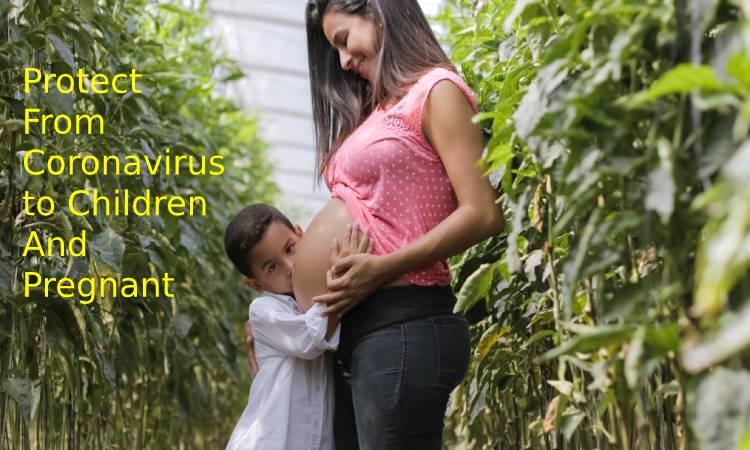
The coronavirus COVID-19 viruses transmitted mainly by direct contact with the drops of breath that an infected person can expel by coughing or sneezing without adequately covering the mouth.
Contagion can also occur by touching contaminated surfaces, as the virus can survive on a surface for several hours. However, with proper cleaning measures, it can be removed.
Among the most common symptoms of coronavirus are:
Fever
Cough
Difficulty breathing
In more complicated cases, the infection can cause pneumonia or severe breathing difficulties; the disease can be fatal in rare occasions.
The disease is the same as the flu, a common cold; the only way to know a person is suffering from infection is through a test.
During pregnancy, women are more susceptible to virus attacks because pregnancy naturally suppresses the woman’s immune system.
Our study shows that pregnant women are more prone to immune suppression, the study notes.
Prevention measures from Corona virus COVID-19:
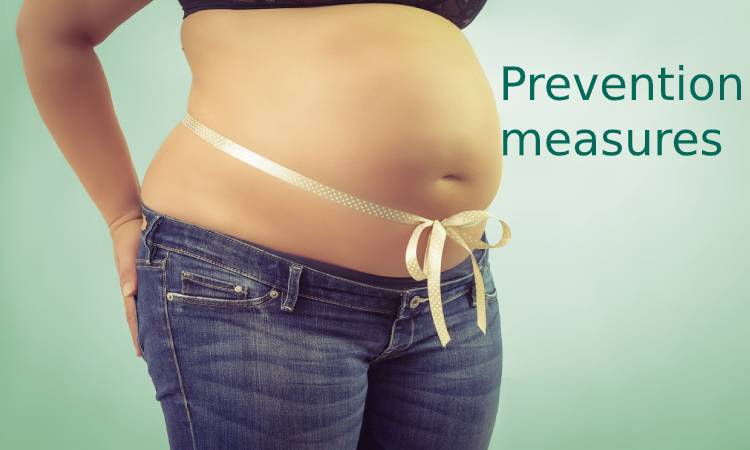
UNICEF specialists take extreme measures to protect against the COVID-19 coronavirus, both in children and pregnant women,
which mainly consist of the following:
- Wash your hands till elbows frequently with soap and water or with a disinfectant that contains alcohol. Before and after touching the things.
- when you cough or sneeze, cover your nose and mouth with your elbow flexed or with a tissue
- Avoid direct contact with someone who has cold or flu symptoms.
- See a doctor if you have a fever, cough, or shortness of breath.
- Mouth mask also recommends in the presence of respiratory symptoms such as coughing or sneezing to protect other people.
- Mouth covers should dispose of it properly to guarantee its effectiveness and avoid the risk of transmission of the virus.
There is no enough information about how it affects children or pregnant women.
The disease Corona virus COVID-19 is rarely fatal
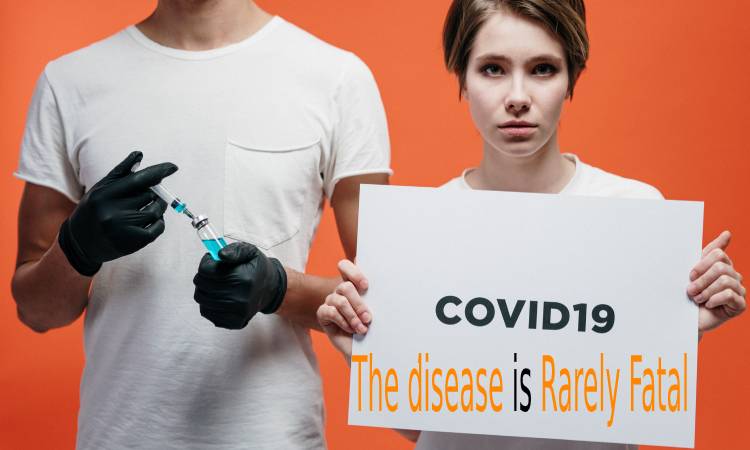
The condition is rarely deadly, and so far, the fatalities have been older adults who already had an infection.
You should seek emergency medical help as soon as the child begins to develop symptoms of the COVID-19 coronavirus. To avoid going to work, school, and public transport in these cases not to infect other people.
At the moment, there is no evidence to determine whether the virus can transmit from mother to fetus during pregnancy, nor of the consequences this may have on the baby later.
According to the BBC, one possibility is that you have contracted the virus in your mother’s womb. However, it is also possible that the baby contracted the virus after birth, by coming into contact with your mother.
Protecting children and pregnant women from the coronavirus, hence adequate precautions should take and seek medical help if symptoms such as fever, cough, breathing difficulties begin to appear


